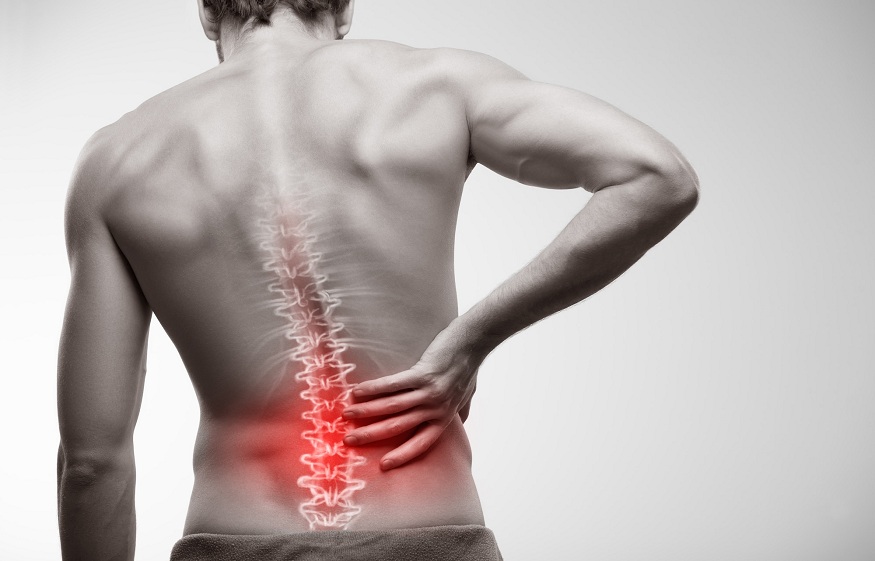Slipped Discs: Causes and Treatments
A slipped disc (or herniated disc) is a common spinal injury. Your spine comprises a set of bones (vertebrae) extending from the base of your head to your tailbone. The discs are circular cushions that sit between your vertebrae. The discs function as cushions between your bones, allowing you to bend and move freely. When one of these discs rips or leaks, this is referred to as a slipped disc.
Herniated discs are more common in people aged 30 to 50. Men are affected twice as frequently as women.
Other risk factors include:
- Sitting in the same position for extended periods.
- Being overweight.
- Lifting large items.
- Repeated bending or twisting actions for employment, sports, or leisure.
Causes
Disks contain soft, gel-like interiors and a stiffer outer layer, similar to a jelly doughnut. The outer layer deteriorates and might break over time. A herniated disc occurs when the inner “jelly” material pushes through the crack. The leaking substance may put pressure on surrounding spinal nerves.
A disc rupture can be caused by several circumstances, including:
- Excessive weight.
- Repetitive movements
- Acute strain caused by improper lifting or twisting.
The symptoms of a slipped disc will vary depending on where the issue is in your spine. Symptoms increase with movement and improve with rest.
Back
It is usual for a slipped disc in the lower back to generate “sciatic nerve” discomfort. This severe pain generally radiates down one side of your buttocks, through your leg, and occasionally into your foot. Other symptoms of a ruptured disc in your lower back include:
- Back pain.
- Tingling or numbness in the legs and/or feet.
- Muscle weakness.
Neck
Symptoms of a slipped disc in your neck include:
- Pain near or between your shoulder blades.
- Pain that radiates to your shoulder, arm, and, on occasion, your hand and fingers.
- Neck ache, particularly in the back and sides of your neck.
- Pain that worsens when bending or rotating your neck.
- Arm numbness or tingling
When To Visit a Doctor
Initially, you can manage slipped disc discomfort at home. However, you should consult a doctor if:
- Pain interferes with daily living, such as going to work.
- After four to six weeks, symptoms have not improved.
- Symptoms worsen.
- You lose bladder or bowel control.
- You feel tingling, numbness, or a lack of strength in your arms, hands, legs, or feet.
- You have problems standing or walking.
Treatment
If your symptoms do not improve, you may require more extensive treatment for slipped discs. Your doctor may advise you to:
- Medication: Your doctor may prescribe an anti-inflammatory pain medication or a muscle relaxant.
- Physical therapy: A physical therapist will give you an exercise routine to reduce strain on your nerves. Exercise relaxes tense muscles and promotes circulation.
- Spinal injections: Also known as an epidural or nerve block, a spinal injection is a dose of steroid medicine administered straight into your spine. The drug lowers the swelling and inflammation of the nerve caused by disc herniation. This will assist your body in recuperating and returning to activities more quickly.
- Surgery: In rare situations, a big herniated disc may cause nerve damage to the bladder or intestines. This might necessitate immediate surgery. Surgery is an option for non-emergency circumstances when other therapies fail. The purpose of spinal decompression surgery is to reduce pressure on the nerve.
Those who have had treatments for slipped discs in Singapore will typically see their symptoms reduced, or they would resolve on their own in time. However, your doctor may consider surgery if alternative therapy fails to ease your symptoms. There are several surgical procedures for alleviating pressure on the spinal cord and nerves, including:
- A diskectomy to remove a herniated disc.
- Laminectomy to remove a portion of the bone around a herniated disc and extend your spinal canal.
- Artificial disc surgery to replace a damaged herniated disc with an artificial one.
- Spinal fusion is the direct joining of two or more vertebrae to stabilise your spine.



